Will Sharif, Zardari and Imran sit together?
Experts shed light on the hurdles and what can push titans to sit across the table
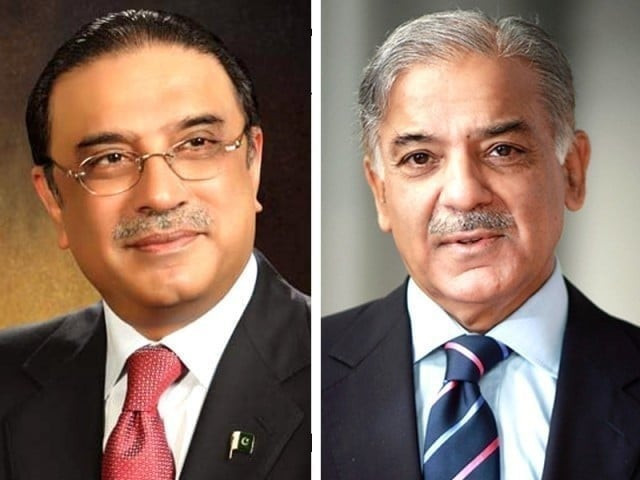
The idea of three political titans - Nawaz Sharif, Asif Ali Zardari and Imran Khan - sitting across a table to untangle Pakistan's longstanding crises might seem like a pipe dream.
However, in a country where the political chessboard is often more unpredictable than its players, even improbable ideas can spark meaningful conversations. As calls for dialogue between bitter rivals gain momentum, some leaders are floating bold proposals, hoping to end decades of turmoil.
Among them, Prime Minister Shehbaz Sharif's political aide Rana Sanaullah believes a 70-day timeline is all it would take for the trio to resolve the crises if they agreed to meet. Defence Minister Khawaja Asif has taken it a step further, calling for a new social contract that brings the military, judiciary and bureaucracy into the fold.
However, the road to such negotiations is riddled with challenges. Political experts weigh in on whether such talks are achievable, what hurdles stand in the way and what it would take to push these political heavyweights to the negotiation table.
For political analysts, the prospect of seeing Nawaz Sharif, Asif Ali Zardari, and Imran Khan share a table seems impossible for now because of the deep political divisions, conflicting agendas and the absence of trust.
However, the experts emphasise that while high-profile talks between party heads might eventually be necessary, meaningful groundwork and confidence-building measures must first take place at the second-tier leadership level.
"Making the three leaders sit together seems impractical & improbable but back & forth process will seek top leadership approval anyway," Pakistan Institute of Legislative Development and Transparency (PILDAT) President Ahmed Bilal Mehboob said.
The PILDAT chief argued that the idea of top political leaders sitting together may seem far-fetched but is not entirely irrelevant, adding that there may be some knotty problems which can't be solved by 2nd tier and these may have to be referred to top leadership.
Addressing Asif's suggestion of including the judiciary, military, and bureaucracy in such talks, Mehboob was unequivocal: "Getting judiciary, military, and intelligence agencies in the talks is not a wise idea. They have no constitutional role in political negotiations, and carving out a formal role for them would be disastrous."
Raza Ahmad Rumi, a policy analyst and journalist, believes that Rana Sanaullah's suggestion makes perfect sense in principle and represents the best way forward. "All major political parties should sit together and draft a new charter of democracy, which keeps civilian supremacy at its core and vows not to undermine civilian rule at any cost," Rumi said.
However, he acknowledged that achieving this lofty goal seems nearly impossible in the current charged and polarised environment. "Political parties view each other as enemies and seek the support of the military establishment to either come into power or retain power," he observed.
Despite the challenges, Rumi expressed hope for the future, stating that such a compact might not happen in the short term but will eventually take shape. "At some point, there will be a new charter of democracy because the current state of affairs is untenable and unsustainable," he added.
In the immediate term, however, Rumi was sceptical about the success of dialogue between the PTI and the government. "Some of the demands made by PTI will not be acceptable to the sitting government and its current backer, i.e., the establishment," he said.
Nonetheless, he stressed that the dialogue process was unlikely to disappear entirely. "This process will continue and might undergo several failures before it leads to an understanding of the fate of political business, including Imran Khan's role and the holding of fresh electionsperhaps more like midterm elections," Rumi concluded.
Eminent scholar Professor Dr Hassan Askari also expressed scepticism about the practicality of these proposals, describing Sanaullah's suggestion as symbolic but unachievable under the current political climate.
"The second-tier leadership first needs to create an atmosphere," he said, adding that confidence-building measures must then be taken before top leaders can come to the table.
Professor Askari said that it's a step-by-step process but there are no signals yet showing all sides were even willing to take things in that direction. He pointed to the conflicting dynamics within PML-N, where Nawaz Sharif's camp favours dialogue, but Prime Minister Shehbaz Sharif's allies lean toward sidelining opponents with institutional support.
He also cautioned against involving non-political stakeholders, calling Khawaja Asif's approach impractical and likely to complicate matters further.
Commenting on the overall situation, Professor Askari said that the government and PTI need to give positive gestures for making the ongoing talks not only successful but become a foundation for future talks among the party supremos.
Talks and threats can't go hand-in-hand, he noted, saying the government should stop crackdowns, arrests and booking opponents in cases while PTI should avoid holding talks and continue with its civil disobedience move.
Despite their scepticism, the experts highlighted the need for all parties to tone down hostilities and create a conducive atmosphere for dialogue. They urged both sides to demonstrate positive gestures to foster mutual trust.


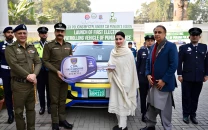
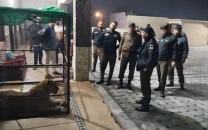
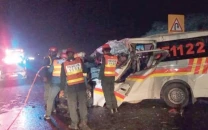
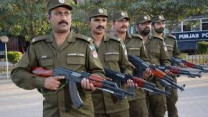












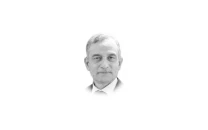
COMMENTS
Comments are moderated and generally will be posted if they are on-topic and not abusive.
For more information, please see our Comments FAQ